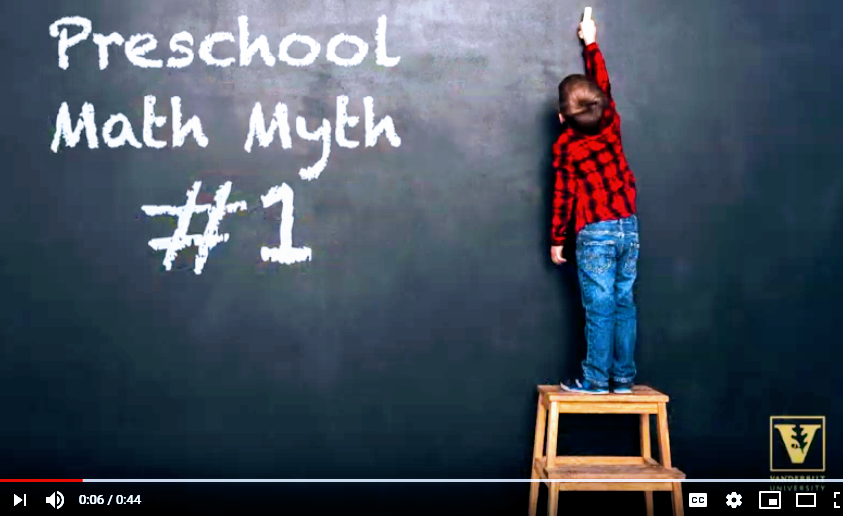According to a recent Vanderbilt University study, preschoolers can learn more complex math concepts that most of their parents think. Some very important concepts can be easily discovered at home, through simple activities and games, in the very first years.
Erica Zippert, lead author of the research and a postdoctoral scholar in the Department of Psychology and Human Development at Vanderbilt University Peabody College of Education and Human Development published, with her colleague Bethany Rittle-Johnson, a report titled “The Home Math Environment: More Than Numeracy,” in Early Childhood Quarterly.
The Vanderbilt study revealed that while parents tend to reinforce number recognition and counting with their young children, they also tend to leave the discovery of more difficult reasoning to their kids' future teachers. However, preschool age is not too early to introduce more complex math fundamentals, of which here are some interesting examples.
1. Play board and card games.
This will provide your children opportunities to count, compare and combine numbers through addition.
2. Use block and puzzle games intensively.
This will help your children to assimilate concepts like spatial dimensions (size, height, distance, etc.), spatial features (side, corner, middle, etc.), as well as locations and directions (upside down, on top of, at the bottom of, etc.). By asking questions such as "Which block tower is higher? Which one is lower?" or "Which side of your building is blue? Which one is yellow?"
3. Look for and create patterns in everyday activities.
For example, explain to your children how days repeat in a week and in a month, and how weeks and months repeat each month and year.
Zippert said that some common myths endure about preschoolers' math learning. In particular the following three.
Myth #1: Basic math skills are all about numbers.
In fact, non-numeracy skills - like spatial skills and patterning - are also crucial to math abilities development, and can be introduced very early. Preschoolers are even capable of understanding numerical magnitude (5 is bigger than 4, 9 is smaller than 10) and adding basic numbers.
Myth #2: Mathematics need to be taught formally at school.
In fact, math learning should start at home and must be really fun. It can be supported by lots of informal tasks and play at home, in the kitchen, the laundry room, the bedroom, the living room, or on the go, at the supermaket, the museum the park, or in the bus.
Myth #3: Not everyone can understand mathematics.
In fact, mathematics are for anyone. When their parents talk positively about math, it becomes much easier for their children to understand, learn and even like it. Never tell your kids the absolute counterproductive phrase "I'm not a math person." This will only reinforces their negative stereotypes about this great field that can be so useful all along their schooling, career and life.

Picture: Common myths remain about preschoolers and math learning (YouTube)



